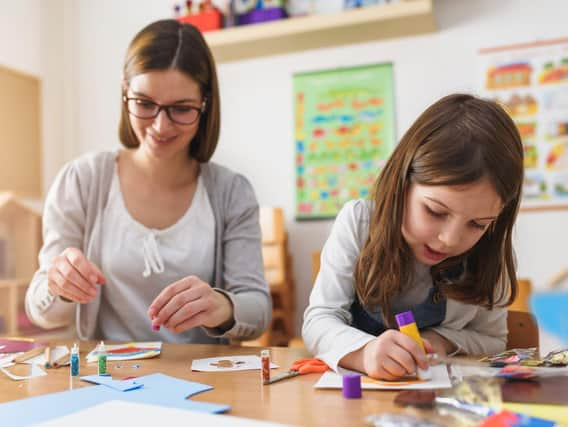Top tips from a teacher on helping children to learn during summer holidays: Mark Roberts


Parents also need a breather. The horrors of home-schooling, often while attempting to do their own work, still loom large in the memory of many. My own experience of attempting to teach long division to my boys aged 10 and eight will scar me for some time.
Yet, as a six-week break approaches, many parents will feel anxious that their children have fallen behind at school and are at risk of becoming demotivated.
Advertisement
Hide AdAdvertisement
Hide AdThey’ll have read the countless studies suggesting that children are a third of a year behind where they should be; that they are missing out on basic maths and literacy knowledge; that these learning gaps could cost children a fortune in future earnings. This year’s summer break might seem to have come at exactly the wrong time.
Parents of boys may well be particularly concerned. Generally, boys do worse than girls at all stages of their primary and secondary education. Boys are less likely than girls to complete homework. Statistics frequently highlight that they read fewer books for pleasure and read less frequently than girls.
Worryingly, research appears to indicate that boys have fallen further behind during the pandemic. Extended periods of remote learning, where many boys have struggled to complete work independently, have led to a widening of gender attainment gaps.
So how can worried parents ensure that their children don’t slip further behind during July and August while ensuring their children can relax and play? And what can they do to motivate switched-off learners?
Advertisement
Hide AdAdvertisement
Hide AdHere is my advice to prepare your children for a successful September return:
1. Set specific, short-term learning goals.
Statements like “you just need to work harder” are well-intentioned but unhelpful. Instead, you need to show your child how to draw up an achievable plan with concrete targets. Using a simple system like writing down a list of maths topics, then assigning themselves a mark out of 10 for confidence levels, can immediately highlight areas to work on. Get them to follow the Goal>Plan>Rule>Habit formula. For example:
Goal – Read a wider variety of texts
Plan – Finish the latest David Walliams, then pick up some challenging non-fiction
Rule – I read complex texts for 30 minutes each night before bed
Habit – Four challenging texts read during August
2. Be empathetic and stay calm.
Advertisement
Hide AdAdvertisement
Hide AdTrying to get your child to complete important work during the holidays can be extremely frustrating. You just want to help them achieve their potential but they just see an unreasonable ogre, placed on Earth purely to ruin their break. But teaching many reluctant pupils, especially teenage boys, has shown me that the tone and language we adopt dictates whether we get any actual work from them.
For example, your child gets annoyed and launches their revision guide across the kitchen table. It’s easy to lose your temper. Yet a more fruitful approach is to empathise with their exasperation. By explaining that frustration and failure are integral parts of the learning process – and in fact are helpful signs that they are challenging themselves – you’ll help build resilience and perseverance: two key ingredients of academic motivation.
3. Help them understand the damaging impact of procrastination
Many children, especially boys, are prone to procrastination. Who wouldn’t want to spend a day in the park rather than catching up on that history work they didn’t do during lockdown?
Advertisement
Hide AdAdvertisement
Hide AdBut the research into academic motivation tells us that in these circumstances the trip to the park won’t be that enjoyable after all. When we procrastinate to avoid a potentially unpleasant task, our resulting feelings of guilt and anxiety spoil the fun activity. To tap into these often unspoken emotions, explain the consequences of procrastination to your child. Over time, they’ll appreciate the benefits of spending a few hours tackling necessary academic work before they go on to enjoy hours of fully earned, guilt-free fun.
This summer offers not just the opportunity to help your kids catch up on some missed learning. Frame the message carefully and you’ll be re-setting their academic motivation for way beyond September.
Mark Roberts is an English teacher from Normanton now working in Northern Ireland. His new book The Boy Question is out now.
Support The Yorkshire Post and become a subscriber today. Your subscription will help us to continue to bring quality news to the people of Yorkshire. In return, you'll see fewer ads on site, get free access to our app and receive exclusive members-only offers. Click here to subscribe.